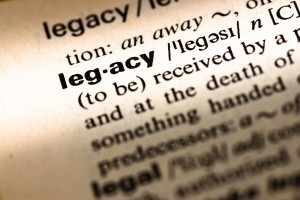Going beyond the author’s legacy
Going beyond the author’s legacy
Going beyond the author’s legacy
-
Hannah Fielding
-
Hannah Fielding
 Stieg Larsson, sadly, never lived to see his novels, the Millennium series, become the worldwide sensation of the past decade. Indeed, he had not even attempted to publish them; he wrote them for his own pleasure in the evenings after work. After this death, the manuscripts were discovered, and subsequently published to great acclaim. We will never know what Larsson would have made of that acclaim, nor what he would think of the news that a fourth Millennium novel, That Which Does Not Kill Us, will be released in August of this year. Not a novel that he wrote, but one penned by another writer, David Lagercrantz.
Stieg Larsson, sadly, never lived to see his novels, the Millennium series, become the worldwide sensation of the past decade. Indeed, he had not even attempted to publish them; he wrote them for his own pleasure in the evenings after work. After this death, the manuscripts were discovered, and subsequently published to great acclaim. We will never know what Larsson would have made of that acclaim, nor what he would think of the news that a fourth Millennium novel, That Which Does Not Kill Us, will be released in August of this year. Not a novel that he wrote, but one penned by another writer, David Lagercrantz.
So reported the Guardian newspaper:
The book will continue the story of the troubled but resourceful heroine Lisbeth Salander first made famous in Larsson’s The Girl with the Dragon Tattoo.
…
“What I wanted to make use of in the book was the vast mythology that Stieg Larsson left behind, the world he created,” Lagercrantz told the DagensNyheter newspaper, adding that he remained loyal to Larsson’s writing style which weaved criticism of social and political issues with criminal intrigue.
Larsson’s own books have sold 80 million copies worldwide. Clearly, the publisher Nordstedts hopes to plump up this figure – it has compared the release to that of Dan Brown’s Da Vinci Codeback in 2003.
Without doubt Larsson created a fascinating, vivid and unique fictional world, and I can see how a thriller writer would be excited to situate a new story in that world. This development is much in the vein of the immensely popular James Bond series. Ian Fleming created Bond, and wrote ten novels about him before dying suddenly. Two novels, The Man with the Golden Gun and Octopussy and The Living Daylights, were published posthumously. According to the Oxford Dictionary of National Biography, 30 million Fleming books were sold during his lifetime, and in the two years after this death that figure rose to 60 million. Clearly, Bond was popular. And so other authors began to take on the character: Kingsley Amis, Christopher Wood, John Gardner, Raymond Benson, Sebastian Faulks, Jeffery Deaver, William Boyd and Anthony Horowitz.
The common themes are as follows:
- The story world is much loved and admired.
- The original works sold very well.
- The original authors were prevented from developing their own story world (both authors died in their fifties, suddenly).
Fundamentally, the business of these newly authored works is the driving force: they will make money. But for the writer creating the book based on the ideas of another, it is about honouring the author in this continuation of his interrupted work, and also about quite openly drawing inspiration from another writer.
Creative people are inspired by the creative works of others. All books to some degree pay homage to the many, many books the author has read before. We are quite comfortable with this fact, but a certain discomfort can creep in when people find too close a connection to another work. Take, for example, EL James. She was criticised by somefor the fact that her Fifty Shades series began as a work of Twilight-inspired fan fiction. But the books sold, in vast quantities nonetheless.
What do you think about an author’s legacy? Do you champion fan fiction? Do you think writers have the right to situate their stories in another’s fictional landscape? I would love to hear your thoughts.